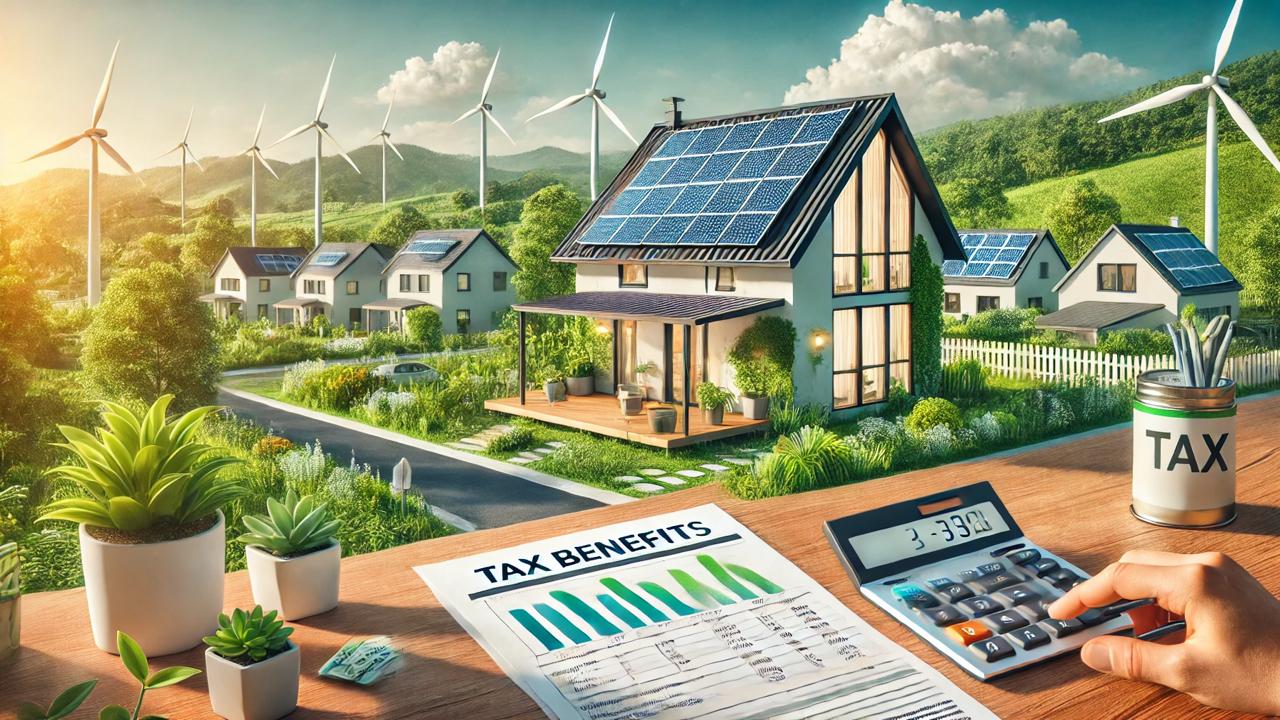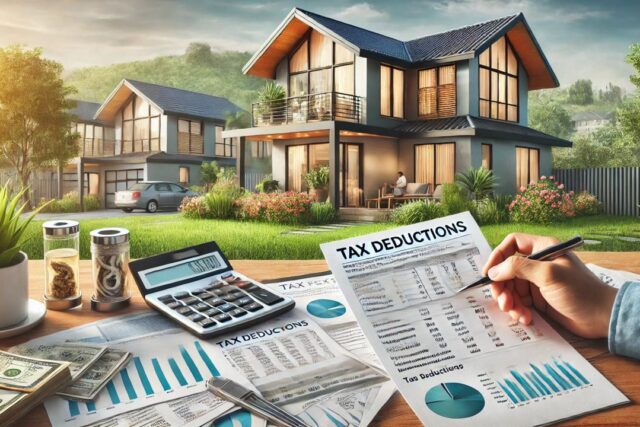
As homeowners seek ways to improve their properties, many are turning to eco-friendly solutions that offer financial advantages. Green home upgrades not only reduce energy consumption and environmental impact but also provide significant tax benefits. By investing in energy-efficient technologies, homeowners can take advantage of government incentives for sustainability.
This article explores the tax benefits of green home upgrades, including energy efficient home improvement tax credits and home insulation tax deductions.
Why Green Home Upgrades Matter
Making eco-friendly home improvements benefits both the environment and homeowners. Reducing energy consumption lowers utility bills, increases property value, and minimizes carbon footprints. Additionally, federal and state tax incentives make green upgrades financially attractive, providing homeowners with opportunities to recover part of their investment through tax benefits.
Understanding Energy Efficient Home Improvement Tax Credits
Energy-efficient home improvements qualify for federal tax credits, reducing the overall cost of upgrading to sustainable solutions. The U.S. government offers incentives to encourage homeowners to invest in renewable energy and energy-saving technologies.
1. Solar Energy Tax Credits
One of the most significant tax benefits comes from investing in solar energy. Homeowners who install solar panels can claim the Federal Solar Investment Tax Credit (ITC), which allows them to deduct a percentage of the installation costs from their taxes. This credit applies to both primary and secondary residences, making it an attractive incentive for those looking to harness renewable energy.
2. Energy-Efficient HVAC Systems
Replacing outdated heating, ventilation, and air conditioning (HVAC) systems with energy-efficient alternatives qualifies homeowners for tax credits. These upgrades enhance energy savings and contribute to a more sustainable home. Qualifying systems include high-efficiency furnaces, heat pumps, and smart thermostats that optimize energy use.
3. Windows, Doors, and Roofing Improvements
Upgrading to energy-efficient windows, doors, and roofing materials can also lead to tax savings. ENERGY STAR-certified products meet government efficiency standards, making them eligible for tax credits. These improvements enhance home insulation, reduce energy waste, and increase overall efficiency.
Home Insulation Tax Deductions
Proper insulation is crucial for maintaining a comfortable indoor climate while minimizing energy costs. Homeowners who invest in insulation upgrades may qualify for tax deductions, further increasing their savings.
1. Types of Insulation That Qualify
Tax deductions apply to various types of insulation materials, including:
- Fiberglass batts and rolls
- Spray foam insulation
- Rigid foam boards
- Cellulose insulation
- Radiant barriers
These materials improve home energy efficiency by reducing heat loss in winter and keeping interiors cooler in summer.
2. Benefits of Insulation Upgrades
Insulating a home effectively lowers heating and cooling costs, reduces strain on HVAC systems, and enhances indoor comfort. The government recognizes these benefits and offers financial incentives through tax deductions and rebates.
State and Local Incentives for Green Home Improvements
Beyond federal tax benefits, many states and local governments offer additional incentives for energy-efficient home upgrades. These programs vary by region and may include:
- Property tax reductions for eco-friendly improvements
- State-specific tax credits for renewable energy installations
- Utility company rebates for energy-efficient appliances
- Grants for green home upgrades
Homeowners should check with their state energy offices and local municipalities to determine eligibility for additional incentives.
Maximizing Tax Benefits for Green Home Upgrades
To make the most of available tax benefits, homeowners should consider the following strategies:
1. Keep Detailed Records
Proper documentation is essential when claiming tax credits and deductions. Homeowners should keep receipts, invoices, and manufacturer certifications for all green home improvements. These records help verify eligibility when filing tax returns.
2. Work with Certified Professionals
Hiring licensed contractors ensures that upgrades meet government efficiency standards. Some tax incentives require installations to be performed by certified professionals, so verifying credentials before starting a project is crucial.
3. File for Credits and Deductions Correctly
Homeowners must accurately report eligible upgrades on their tax returns to claim credits and deductions. Consulting a tax professional can help maximize savings and avoid errors that may delay benefits.
Long-Term Financial and Environmental Benefits
Investing in green home upgrades goes beyond tax savings. These improvements contribute to long-term financial stability and environmental sustainability.
1. Increased Property Value
Eco-friendly homes attract buyers looking for energy-efficient features. Homes with solar panels, smart technology, and high-efficiency appliances often sell at a premium, providing a solid return on investment.
2. Lower Utility Costs
Energy-efficient upgrades significantly reduce monthly utility bills. Solar panels, smart thermostats, and proper insulation lead to long-term savings, making homes more cost-effective to maintain.
3. Environmental Impact
Reducing reliance on fossil fuels and conserving energy benefits the environment. Green home improvements help lower carbon footprints and promote sustainable living.
Final Thoughts
Taking advantage of the tax benefits associated with green home upgrades makes financial sense for homeowners. From energy efficient home improvement tax credits to home insulation tax deductions, these incentives help offset the costs of eco-friendly investments. Additionally, state and local programs provide further opportunities to maximize savings. By embracing sustainable home improvements, homeowners can enjoy long-term financial benefits while contributing to a greener future






Leave a Reply
You must be logged in to post a comment.